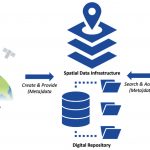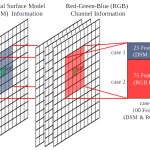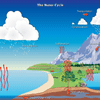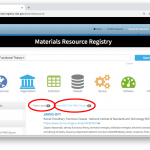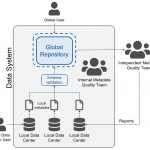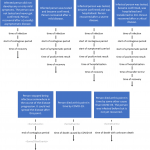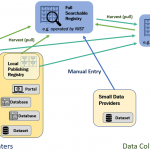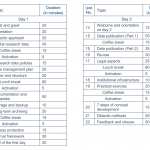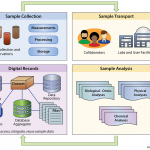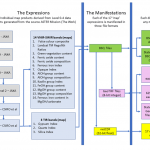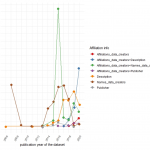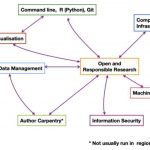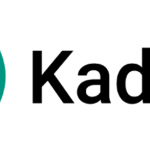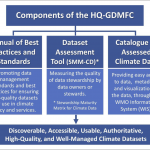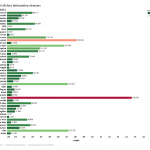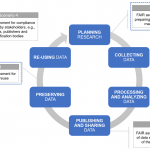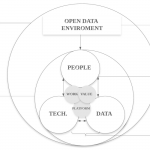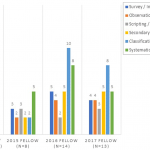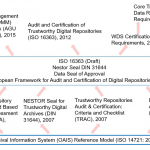

New NASA Earth System Observatory to Help Address, Mitigate Climate Change
NASA will design a new set of Earth-focused missions to provide key information to guide efforts related to climate change, disaster mitigation, fighting forest fires, and improving real-time agricultural processes. With the Earth System Observatory, each satellite will be uniquely designed to complement the others, working in tandem to create a 3D, holistic view of Earth, from bedrock to atmosphere.
Early warning initiative advances in a pandemic
The COVID-19 pandemic has exacerbated impacts of extreme weather and climate change in vulnerable countries but also highlighted the need to build resilience against a multitude of hazards through better early warnings and risk information. This is one of the key messages of the 2020 Annual Report of the Climate Risk and Early Warning Systems Initiative (CREWS), a unique climate action programme that helps saves lives, livelihoods and assets in the world’s most vulnerable countries.
WMO: New climate predictions increase likelihood of temporarily reaching 1.5 °C in next 5 years
There is about a 40% chance of the annual average global temperature temporarily reaching 1.5°C above the pre-industrial level in at least one of the next five years – and these odds are increasing with time, according to a new climate update issued by the World Meteorological Organisation (WMO).
New international expert panel to address the emergence and spread of zoonotic diseases
A new One Health High-Level Expert Panel to improve understanding of how diseases with the potential to trigger pandemics, emerge and spread has been launched. The panel will advise four international organisations – the Food and Agriculture Organisation of the United Nations (FAO); the World Organisation for Animal Health (OIE); the United Nations Environment Programme (UNEP); and the World Health Organisation (WHO).
WMO joins Emergency Alerting Call to Action
The WMO has joined with the International Federation of Red Cross and Red Crescent Societies (IFRC) and the International Telecommunications Union (ITU) to issue a joint Call to Action to improve the availability and use of standardised emergency alerts.

The World Bank – Applying a gender lens to climate actions: why it matters
This brief explores the gender-specific effects of climate change and how inequality can exacerbate the impacts of climate-induced disasters. Gender inequalities, fueled by societal norms and defined gender roles, affect not only women’s exposure to hazards, but also limit their resilience and adaptive capabilities. Therefore, governments are urged to examine the impacts of climate change through a gender lens to address key barriers to gender-responsive climate actions, and increase the roles that women play in decision-making to close such vulnerability gaps.
British Ecological Society: Nature-based solutions for climate change in the UK
The main focus of this report is the joint role of nature-based solutions (NbS) for addressing the climate and biodiversity crises currently facing the UK. Nature-based solutions address societal problems in ways that benefit both people and nature.
WHO: Review of health in National Adaptation Plans
As part of the response to the threats posed by climate change across all sectors, the National Adaptation Plan (NAP) process was established to build resilience to climate change across economies, societies and ecosystems over the medium and longer term.
The World Bank: Climate Change Institutional Assessment
The Climate Change Institutional Assessment (CCIA) identifies the strengths and weaknesses of the institutional framework for addressing these climate change governance challenges. The audience for the assessment is officials of centre-of-government agencies responsible for policy, planning, and finance, agencies with leading roles in climate change policy, and inter-ministerial climate change bodies.
Responsible artificial intelligence for disaster risk management: working group summary
This document is intended to help practitioners and project managers working in disaster risk ensure that the deployment of artificial intelligence (AI), and machine learning (ML) in particular, is done in a manner that is both effective and responsible. The content of this report was produced as part of a 6-month interdisciplinary collaboration between experts from intergovernmental organizations, non-profits, academia, and the private sector.

Parallel Session: Geospatial data for climate resilience and disaster risk reduction – June 22
Join this parallel session on Geospatial data for climate resilience and disaster risk reduction in the GEO Virtual Symposium 2021. We will discuss good practice, lessons learned on EO data and solutions for risk assessment, damage mapping and the development of plans.
UNECE: First Expert Forum for Producers and Users of Disaster-related Statistics – June 7-10
The importance of setting up mechanisms to ensure collaboration and coordination of work on disaster-related statistics across disciplines and organizations has been recognized on national and international level, including the United Nations Statistical Commission (UNSC) and the Conference of European Statisticians (CES). The first Expert Forum for Producers and Users of Disaster-related Statistics will take place as an online meeting on 7, 8 and 10 June 2021
The Integrated Research on Disaster Risk 2021 International Conference – June 8-10
The overall purpose of the 2021 Conference is to reach a renewed consensus on the mission of STEI and put forward a novel proposal on the Global Research Agenda for disaster risk reduction and risk-informed development toward 2030 and beyond.
UN Food Systems Summit: Science Days – July 8-9
Recognising the pivotal role of science, technology and innovation for food systems transformation, the Science Days, organized by the Scientific Group of the UN Food Systems Summit and facilitated and hosted by FAO, offer an important opportunity to support the agenda setting process with scientific evidence and perspectives.
Data for Policy Conference 2021 – Sept 14-16
The sixth International Data for Policy Conference will take place in London on September 14-16, 2021. The Data for Policy conference series is the premier global forum for multiple disciplinary and cross-sector discussions around the theories, applications and implications of data science innovation in governance and the public sector.





